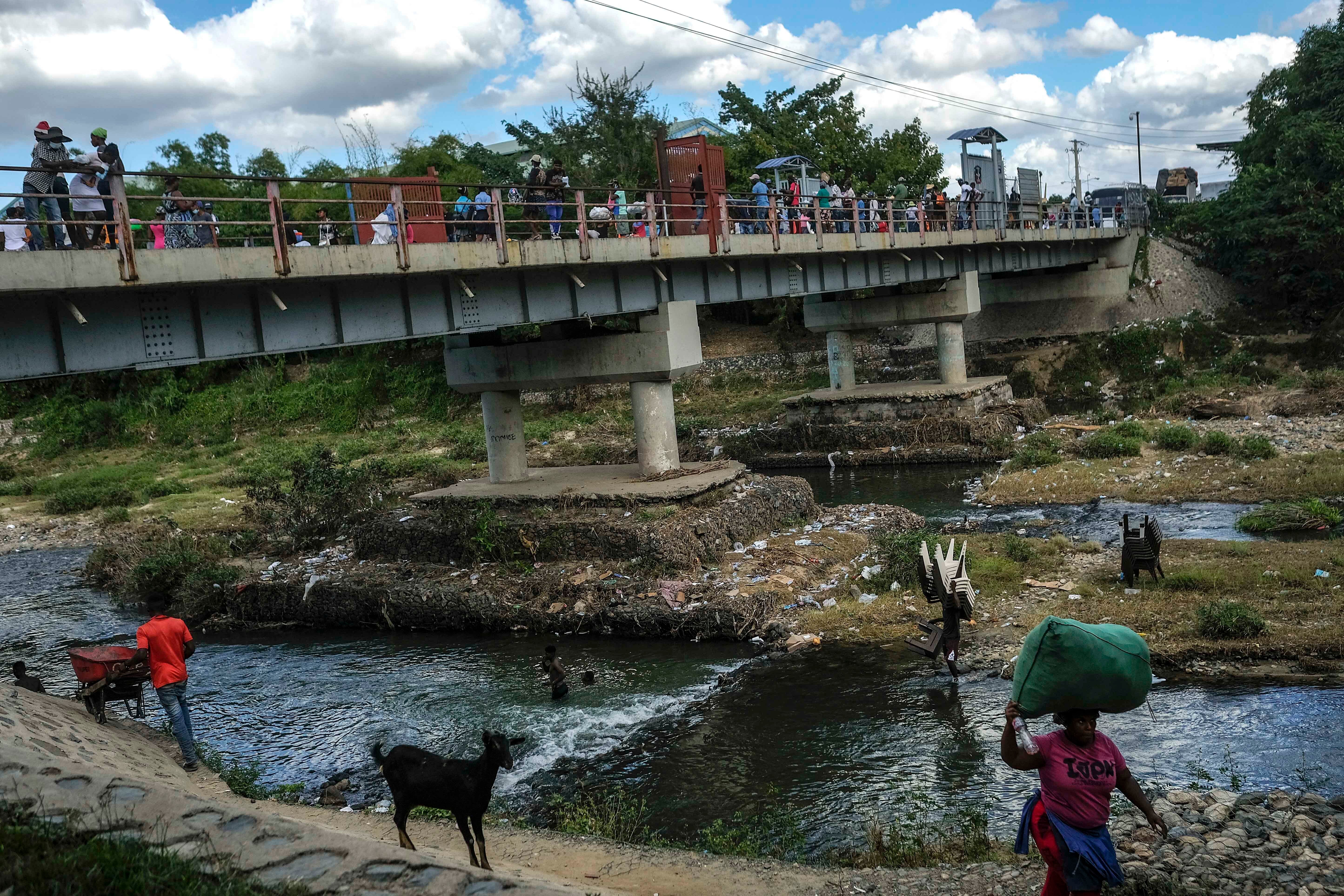Dominican president suspends visas for Haitians and threatens to close border with its neighbor
The president of the Dominican Republic says he has suspended issuing visas to Haitians, and he is threatening to shut down land, air and sea traffic between the two neighbors over their latest dispute

The president of the Dominican Republic announced Monday that he has suspended issuing visas to Haitians, and he threatened to shut down land, air and sea traffic between the two neighbors over their latest dispute.
President Luis Abinader's move follows the recent excavation of a supposed canal in Haiti that Dominican officials argue will divert water from the Massacre River and harm its farmers and the environment. The river, which runs in both countries, is named for a bloody battle between Spanish and French colonizers in the 1700s.
It is not clear who, if anyone, authorized the digging of the canal in Haiti.
“If the conflict is not resolved before Thursday, (officials will) completely close the border to air, sea and land commerce,” the Dominican government said in a statement.
That would be an economic blow to Haiti, which gets much of its imports from the Dominican Republic and where inflation has skyrocketed and poverty deepened amid a surge in gang violence.
It would also hurt Dominican businesses.
A study by the Dominican Republic’s Central Bank said $430 million in informal border trade was conducted in 2017 between the two countries, which share the island of Hispaniola. Of that amount, more than $330 million represented exports to Haiti.
Haiti is also the Dominican Republic’s third biggest partner in formal trade, with $1 billion in exports to Haiti last year and $11 million in imports, according to the Export and Investment Center of the Dominican Republic.
Last week, the Dominican government sent a crew to monitor the construction of the canal from across the border, with officials telling local media that it wasn’t an intimidation tactic but rather an offer to help detain, if necessary, civilians that might be working on the project without permission.
The excavation prompted Abinader last week to shut the border near the northern town of Dajabon, a crucial crossing for Haitians who sell and buy a range of goods there several times a week.
Former interim Haitian Prime Minister Claude Joseph recently defended the construction of the canal and accused critics in the Dominican Republic of being nationalists and racists.
Last year, Abinader banned Joseph from entering the Dominican Republic in an unrelated dispute that heightened the simmering tensions between the two countries.
Abinader has sought to limit the migration of Haitians into the Dominican Republic in recent years and has expelled tens of thousands of Haitians and those of Haitian descen t. His administration also has begun work on a 118-mile (190-kilometer) wall along the Haitian border that Abinader announced early last year.
The last time the Dominican Republic fully closed the border its border with Haiti was in July 2021, after Haitian President Jovenel Moïse was assassinated. Since then, it has occasionally closed parts of the border for security reasons.
___
Associated Press writer Dánica Coto in San Juan, Puerto Rico, contributed to this report.
Bookmark popover
Removed from bookmarks